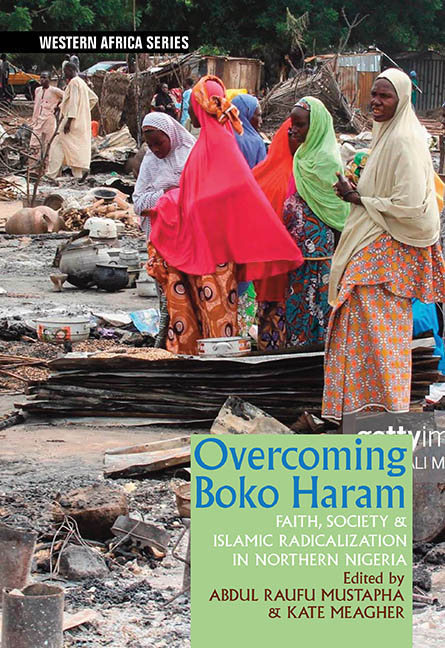Book contents
6 - Pathways to radicalization Learning from Boko Haram life histories
Published online by Cambridge University Press: 21 March 2020
Summary
Introduction
In this chapter we seek to understand the process of radicalization by examining the life-histories of 59 (former) members of the Nigerian Islamic terrorist group widely known as ‘Boko Haram’. Life histories offer more complex insights into the motives behind violent radicalization, rather than ‘labouring in vain for simplistic answers to equally simplistic questions about root causes of radicalization and violence’ (Horgan 2008). Attention to root causes of extremist violence remains important, but only where they are set in a richer social and policy context that reveals the interaction of causes to create paths into radicalization. Radicalization pathways are useful tools to combine root causes with a process-based analysis, channeling otherwise ordinary people into violent action. In this approach, root causes of radicalization are factors that either push people away from the non-violent ‘mainstream’ or pull them towards a violent organization.
Radicalization is most clearly analysed as a process that individuals go through, as they are pushed and pulled by root causes of radicalization triggered by a variety of historical contingencies, while others are hindered by barriers to violent action. Studying life histories of radicalized individuals has allowed us to identify some of the key causes and barriers in the pathways that Boko Haram members have taken and describe parts of the sequences in which these factors have pushed, pulled and hindered violent radicalization. Focusing on interacting causes plays an essential role in identifying suitable points of policy intervention. As Bjorgo (2005, 256) explains:
Addressing factors that cause a recurring problem is usually preferable to dealing with symptoms and consequences … The approach requires, however, that we can identify causes and mechanisms that are of such a nature that they are available for intervention and possible to change.
This chapter contributes to the growing body of empirical studies on the nature of Boko Haram membership and the radicalization paths that have led towards it (e.g. Onuoha 2014; Mercy Corps 2016; Botha and Abdile 2017; Ehrhardt 2019). Its contribution is empirical as well as theoretical, as it analyses the 59 narratives in the context of radicalization theory, and begins to formulate empirically driven models for Boko Haram's radicalization pathways.
- Type
- Chapter
- Information
- Overcoming Boko HaramFaith, Society and Islamic Radicalization in Northern Nigeria, pp. 169 - 192Publisher: Boydell & BrewerPrint publication year: 2020

